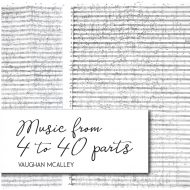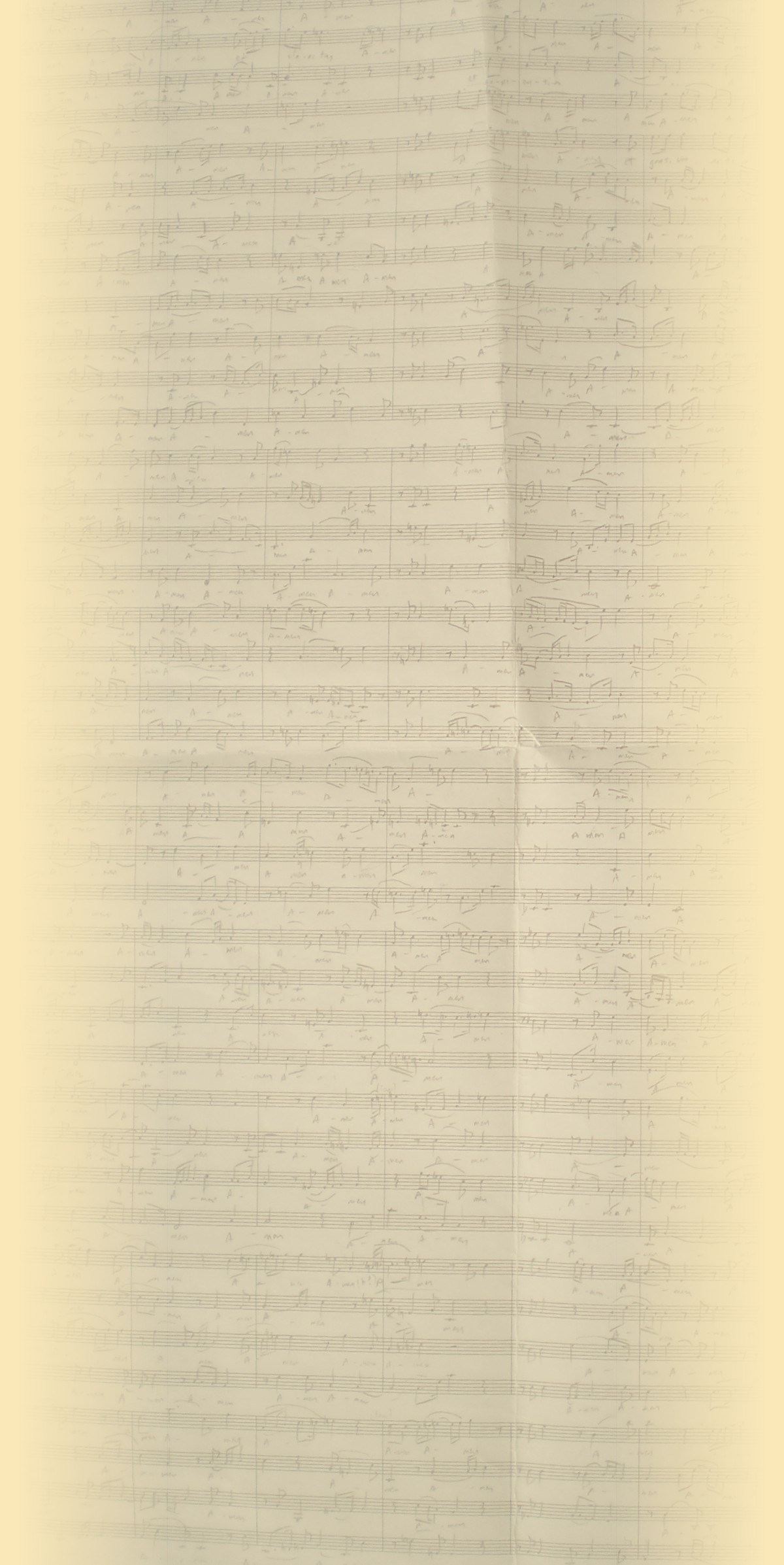motet for 40-part choir
by Vaughan McAlley (2012)
The idea for Omnes angeli came to me when I decided to organize a casual performance of Thomas Tallis’ Spem in alium for my fortieth birthday. With forty voices voices to be assembled, I decided to try writing a forty-part piece of my own. The text for Omnes angeli comes from the Book of Revelation 7:11-12:
And all the angels stood round about the throne, and about the elders and the four beasts, and fell before the throne on their faces, and worshipped God, saying, Amen: Blessing, and glory, and wisdom, and thanksgiving, and honour, and power, and might, be unto our God for ever and ever. Amen.
Omnes angeli was premiered on 26 October 2013, in a concert at The Dome, 333 Collins Street, Melbourne. John O’Donnell conducted Ensemble Gombert, together with guest singers:
Richard Bolitho, David Brown, Peter Campbell, Yi Wen Chin, Rebecca Collins, Catherine Cowie, Will Cuningham, Robin Czuchnowski, Tim Daly, Niki Ebacioni, Hildy Essex, Sarah Harris, Brian Johnson, Claerwen Jones, Loclan MacKenzie-Spencer, Jenny Mathers, Kate McBride, Josh McLeod, Andrew Murray, Megan Nelson, Tim van Nooten, Katherine Norman, Mike Ormerod, Ben Owen, Kathryn Pisani, Maria Pisani, Sam Qualtrough, Andrew Raiskums, Tom Reid, Katrina Renard, Julien Robinson, Michael Stephens, Stuart Tennant, Matt Thomson, Leonie Tonkin, Carol Veldhoven, Jonathan Wallis, John Weretka, Belinda Wong-Barker, Kim Worley.
I wrote the following notes for the program:
From a technical point of view, writing music in forty parts is like writing a novel with forty main characters—ones needs a very good way of keeping track of everything. It is also an enormous canvas, requiring a suitably grand subject. I was partly inspired by the near-death experience described a non-musical Baptist pastor. In his experience of Heaven he described numerous angels all singing different lines but harmonising together, a beautiful scene for theists and humanists alike. As a text I chose the scene of angels, elders and animals worshipping the Lamb from the Book of Revelation.
A forty-part choir allows gigantic and spectacular tuttis, but also many different combinations of smaller groups. Omnes angeli is written for ten four-part choirs, all with different voicings (except for choirs 4 and 5), and which are arranged in a semicircle. The higher voices of sopranos and altos are on the outside edges, whereas the middle choirs are a rich ensemble of tenors, baritones and basses. From each end of the semicircle, the two highest sopranos call and answer “one to another” like the Seraphim from the book of Isaiah (6:2-3).
In the middle section, every part sings the breathless phrase “Blessing, and glory, and wisdom, and thanksgiving, and honour, and power, and might, be unto our God for ever and ever”. This phrase is begun by the men of Choir 6, gradually works its way around the the high voices of Choir 10, jumps to Choir 1, and progresses around the semicircle until it reaches Choir 5. Choir 5 finishes the acclamation, but is mostly drowned out by a huge tutti Amen that is the climax of the whole work. As Tallis learned, having each of forty parts enter one after another will occupy a significant proportion of one’s piece!

